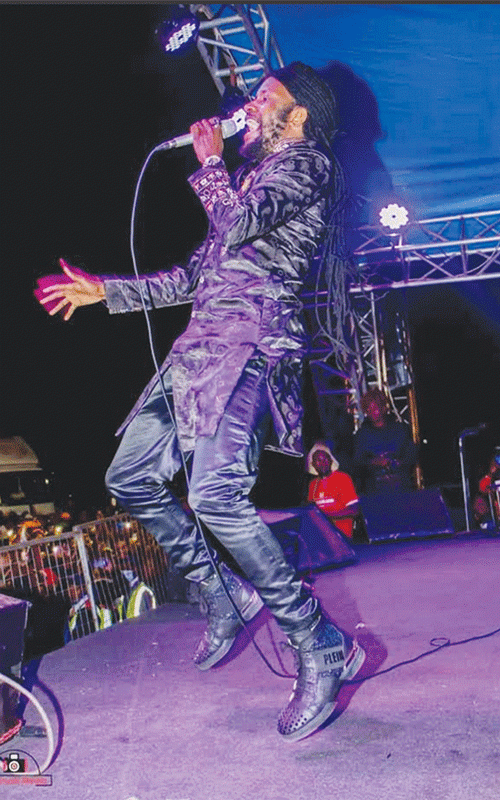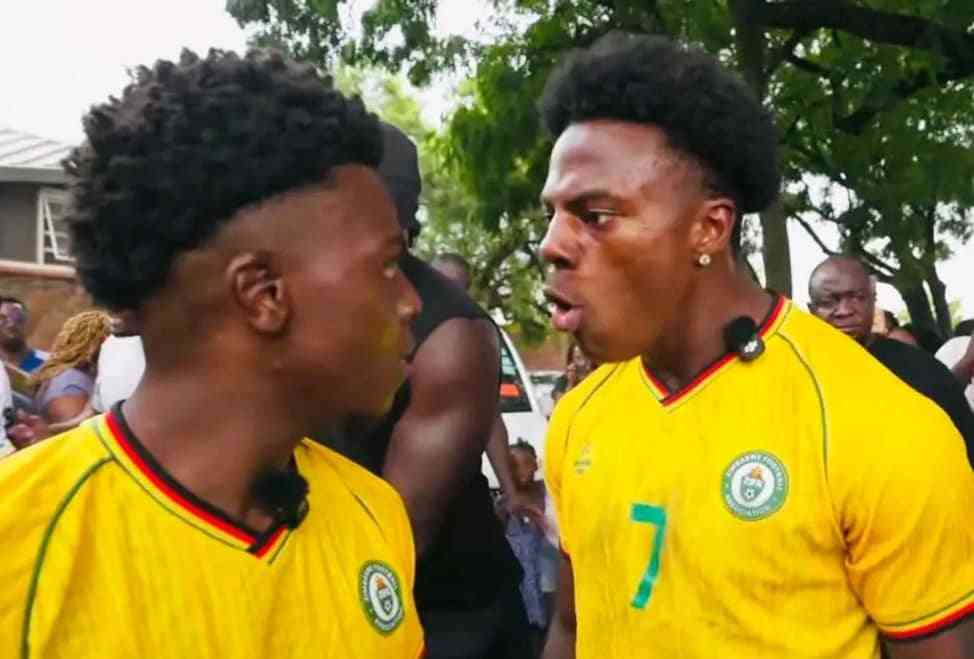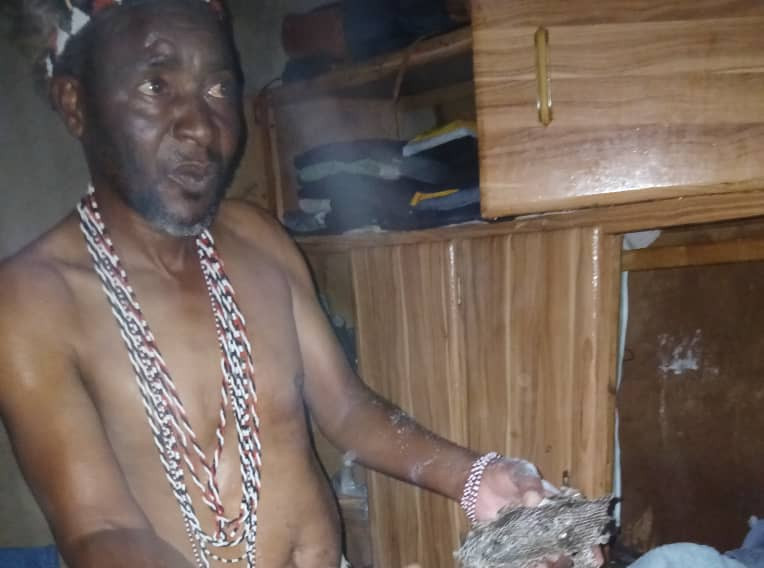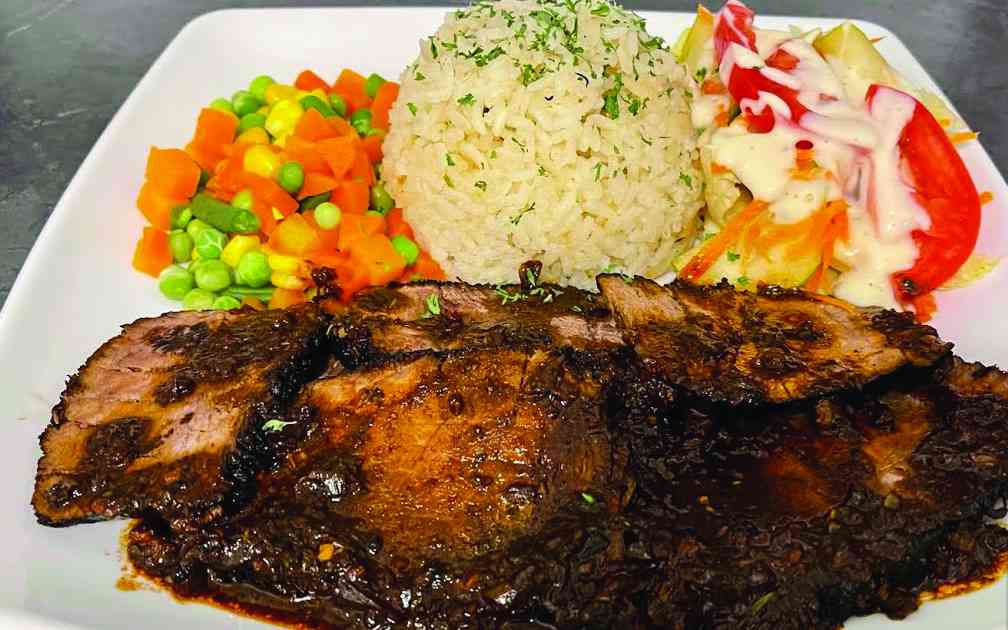
"HANDINA bakatwa, uta nemuseve. Ndofamba na Jesu chete”. (I have no spear, bow or arrow. I walk with Jesus) opposition leader Nelson Chamisa sang at a rally before the 2018 election.
His two-minute prayer also emphasised his lack of ammunition to fight the Emmerson Mnangagwa regime which ascended to power through a military-assisted coup in 2017.
Fast forward to the wee hours of January 1, 2023.
Winky D stands in front of a podium in a packed Harare International Conference Centre, depicting a state-of-the-nation address by a politician.
"Handina pfumo, handina bakatwa, ndiri muimbi chete" he echoes Chamisa's prayer to show he is just a vessel in service to the country and its poorest.
Winky D mirrors the state-of-the-nation — socially and economically in a performance of the song iBotso which loosely translates to mean a curse.
The Holy Ten-assisted, "Ibotso" (translated "curse") mirrors the downgrade of the economy and culture.
Winky D has for years been a social commentator through his hard-hitting and socially charged lyrics, speaking of how the big wigs at the top are looting government funds meant to better the lives, education and health sector of the nation.
- NoViolet Bulawayo’s new novel is an instant Zimbabwean classic
- Jah Prayzah, Zanu PF rekindles ‘lost love’
- Bank workers appeal to Ncube for tax relief
- Indosakusa marks 21-year anniversary milestone
Keep Reading
Barely 24 hours after the release of the song, Holy Ten sensationally regretted ever featuring on the song claiming the song was now being politicised and his name drawn along partisan lines.
However, reports suggest that the song irked the artiste's handlers who felt that Ten had engaged in an unholy alliance with Winky D.
The song went on to ruffle more feathers as Zanu PF director of information and publicity Tafadzwa Mugwadi accused Winky D of being used by the United States embassy in Harare to preach the regime change agenda meant to topple Mnangagwa.
Economic Empowerment Group, a Zanu PF affiliated pressure group held a press conference calling for a ban of Winky D's music saying it caused alarm and despondency within the 'peaceful' youths.
On Vafarisi, Winky D relives the August 1 shooting in Harare in a supposedly party song.
On the first listen one will quickly dismiss it as the weakest stub of the hard-hitting body of work. It feels like it deviates from the album’s wave and spirit but after the second, third and many ‘interfaces’ it turns out to be a hit, pregnant with undertones.
The more you listen to the supposed party song, the more you pick out the social and political undertones hidden within metaphors and bars from three distinct but similar sounding melodies from Winky D, Poptain and Bazooka.
It sounds like a Gafa Party (Toi Toi) with a blend of Simba. Ironically Winky D's childhood friend Bhobho features in Gafa Party and Vafarisa and his duty is simply to capture Kodak moments.
Themes like demonstrations, police and military brutality, party and yes, party (political) are hidden in metaphors with shock and replay value.
Speaking to Standard Style, author and music critic Onai Mushava described Vafarisi as "a Trojan horse."
"'Toi Toi (Gafa Party)' is both a party-song template and an intertextual decoy for the new song. That's what makes 'Vafarisi' dangerous, It's a Trojan horse."
"A state-of-the-nation address in every bar, kombi, even boombox-saturated pastures in the countryside. Zexie Manatsa outwitted Rhodesians using bush metaphors and church metaphors. Winky D is saving youth culture from slackness and complacency using its own language," he said.
More political banter is thrown in on the song- Kutonhodzwa kwa Chauruka which features Tocky Vibes.
Both artistes have had unfortunate personal encounters with the ruling party. Winky D and his band-Vigilance had to run for dear lives in 2018 at Golden Mile in Kwekwe after a group of thugs reportedly attacked them with machetes after the musician had released Kasong ke Jecha- a song which spoke on corruption and poverty.
Kwekwe is well known for a violent group Al- Shabaab which terrorises opposition supporters. The group is said to be under the ruling party's provincial leadership.
Tocky Vibes' pregnant wife and manager were beaten up by soldiers during the shutdown protests which rocked the nation in January, 2019. The musician went on to release a diss song for the army.
The song is taken off the folktale novel Kutonhodzwa kwa Chauruka, which has a double entendre in the name 'Ruka' a cynical street name for the President. The song points out that as high as Chauruka (king) is, one day he shall be humbled.
In his lyrics Winky D emphasizes that 'Kutonhodzwa kwa Chauruka, variku denga vachaburuka' the second line is double entendre as it suggests leaders will fall and the heavens will come down, a narrative also taken from his previous song Dzika Ngirozi.
Tocky echoes 'Pachaiata mupururu' to signal joy and happiness when that day finally comes.
One wonders who could be the modern day Chauruka being referred to.
Eureka's poverty and corruption biting lyrics might have instilled and re-ignited Zimdancehall's consciousness and resistance that had been prostituted and sanitized by the rise of Mbingas and Zanu PF's involvement in music.
During its come-up, the genre tackled real life issues, called out politicians, drug abuse and fake prophets. Lately the genre players and gatekeepers were now dining and wining with mbingas and politicians making it hard to call them out.
So evident that 'who holds the piper detects the tune', artistes started praising their handlers in every song for their next meal. Music, especially Zimdancehall is now being used for clout and political milage.
President Mnangangwa's twin sons Collins and Sean are reportedly running Scarfmore Records which has been financing a number of musicians, some who have been seen posing for photos with the twins at their offices.
Music critics say the label is an instrument to use music to win the love of ghetto youths and is part of baiting the youth vote in the 2023 harmonised elections.
Scarfmore Records donated US$10 000 worth of studio equipment to the Mbare-based record label Chillspot and also financed Enzo Ishal’s paintball business.
Political analyst Pride Mkono challenged the youths to ride on the wave and revolutionary spirit set by Winky D in changing the status quo.
"Winky D and his collaborating artistes have proved to be far much more radical intellectuals of our time than our supposed political thinkers and actors. The radicalism and depth they have articulated the grim reality of our situation perhaps ahead of time.
When #ZimbabweanLivesMatter was trending, there was a call on artistes to stand with the people. They have done so now in an unequivocal sense and they need to be matched by youth activism on the ground and not just complaints and compliments online," he said.
Music critic and academia Fred Zindi echoed the same sentiments with Mkono.
"It is an excellent album featuring the likes of Holy Ten , who has since chickened out on Ibotso and Britain-based Shingai Shoniwa who features on Dzimba Dzemabwe.
"The album is telling the truth about the experiences of the poor and suffering masses of Zimbabwe. The Zanu PF officials like Mike Chimombe who think that it should be banned from ZBC are scared of the masses knowing the truth which might cause a revolution or anti-Zanu PF sentiments.
"However, banning of records in this country is now a thing of the past as ZBC does not control platforms like Spotify, Tik-Tok, I-Tunes, You Tube, Sound Cloud, Pandora, Amazon and other digital spaces.
"Our constitution allows for freedom of speech and it is albums like this which give up-coming artistes to be bold enough to speak the truth. If this kind of trend goes on, the future of Zimbabwean music is brighter than it is today," he said.
Winky D is still releasing songs from the album in a sequence and we wait for more music.
In a bid to stop intolerance in the music industry, despite their differences, Winky D has a featuring artist on every song he has released sofar. The lyrics also shows how the musicisns seeks to stop political intollerance ahead of the harmonised elections this year.
Winky D uses art to unite artists and the country at large at a socio-political level. As William Shakespeare says, 'the object of art is to give life a shape'.










